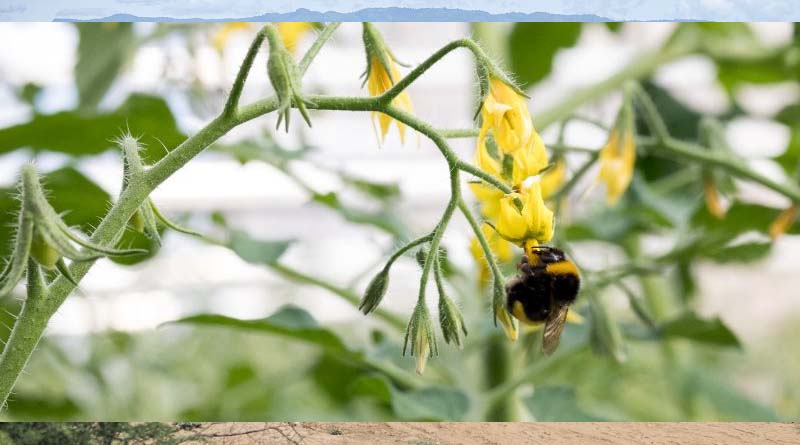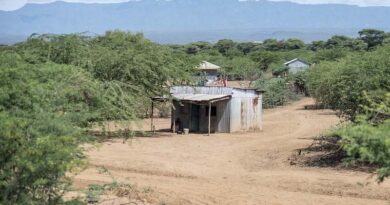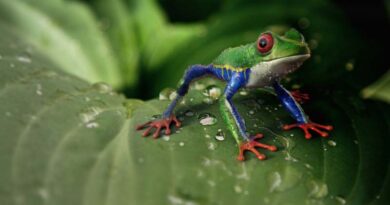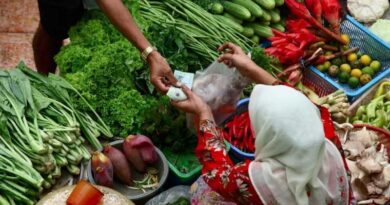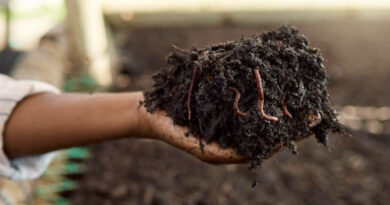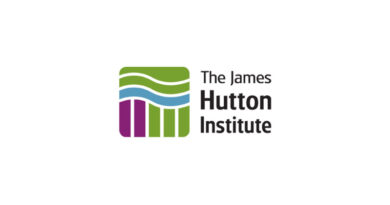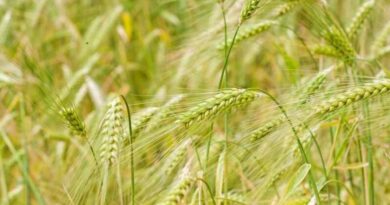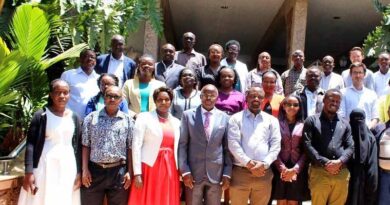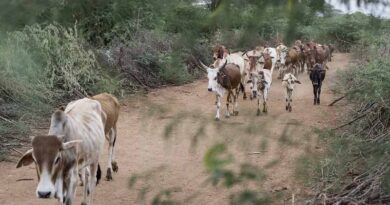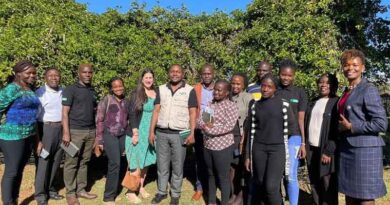Conserving biodiversity: biocontrol for sustainable agriculture
22 May 2023, Kenya: Can biocontrol help protect biodiversity? Biodiversity refers to all the living things on Earth, including how they interact with each other. A rich biodiversity means a healthy planet.
However, biodiversity is in decline. The IPBES identified the main contributors to biodiversity loss as the changing use of the sea and land, direct exploitation of organisms, climate change, pollution and invasive species.
PlantwisePlus is working to ensure the agricultural sector is part of a healthy landscape with clean water and air and healthy soils, where biodiversity is protected through sustainable approaches to crop pest and disease management.
Pests and diseases constantly threaten farmers’ crops. As a result, pesticides are often the first option when faced with an outbreak. The excessive and misuse of harmful chemicals is particularly damaging to biodiversity. As well as killing off target pests, chemicals also harm beneficial insects such as pollinators and natural enemies.
PlantwisePlus recognises the urgent need to increase the uptake of lower-risk plant protection. As such, the programme promotes the use of low-risk plant protection solutions such as biological control (biocontrol).
Biocontrol uses living organisms such as natural enemies, predators, parasites or disease-causing organisms to reduce pest populations. Biocontrol is a sustainable and environmentally friendly alternative to chemical pesticides that is also economically efficient, as once natural enemies are established, they provide ongoing control without further cost or intervention.
There are three main types of biocontrol.
Classical biocontrol
Classical biocontrol uses host-specific natural enemies from the pests’ region of origin to control the introduced non-native species. It is primarily used to control invasive species.
In Kenya, PlantwisePlus and partners are working to implement a classical biological control strategy to manage papaya mealybug (Paracoccus marginatus). The invasive pest has been devastating papaya crops in Kenya. A CABI study in 2019 found it caused an estimated 57% yield losses across five counties.
PlantwisePlus has been testing the efficacy of the parasitoid wasp, Acerophagus papayae, as a biological control agent. A parasitoid lives on or inside a host and always kills the host. In contrast, a parasite is an organism that lives in or on a host but does not kill the host.
The parasitoid wasp is native to the Americas and after host range testing in quarantine, researchers released A. papayae in the coastal counties of Mombasa, Kwale, and Kilifi in December 2021. The parasitoid is now established at these pilot sites and controlling the pest.
Find out more about the classical biocontrol strategy to control papaya mealybug.
Augmentative biocontrol
This form of biocontrol involves the mass production and periodic release of large numbers of biocontrol agents to control a pest.
PlantwisePlus has been working with partners in Pakistan to pilot mass production facilities for another parasitic belonging to the genus Trichogramma. Wasps belonging to this genus are commonly sold commercially worldwide, for augmentative biological control of various lepidopteran pests in agriculture and horticulture.
Conservation biocontrol
This form of biocontrol manages pests through the modification of the environment or existing practices to protect and enhance populations of specific natural enemies or other organisms.
CABI scientist Léna Durocher-Granger has been researching the biocontrol of fall armyworm (FAW) in Zambia. The team has identified 15 naturally occurring parasitoid species.
Studies have shown that these parasitoids attack up to 45% of the FAW eggs and larvae during the crop cycle. Intercropping maize with nectar-producing plants can help to increase the populations of these beneficial insects. These plants provide food and shelter for the insects, which helps them to survive and reproduce. As a result, there are more insects available to control the FAW population.
Find out more about conservation biocontrol in Zambia.
CABI Bioprotection Portal
The CABI Bioprotection Portal is an open-access tool that enables users to discover information about registered biocontrol and biopesticide products around the world. Available online and offline, the CABI Bioprotection Portal helps growers and agricultural advisors to identify, source and correctly apply biocontrol and biopesticide products against problematic pests in their crops. The portal is accessible online and offline via smartphones, tablets and desktops.
(For Latest Agriculture News & Updates, follow Krishak Jagat on Google News)

